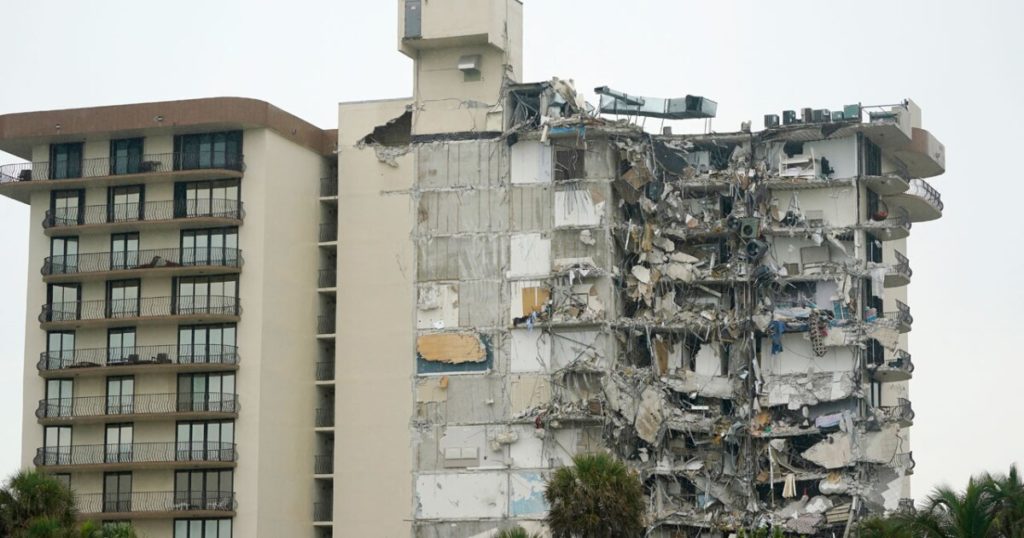Eight months after images of a coastal condominium crumbling to the ground shocked and horrified the nation, one of the experts investigating the tragedy said he will not be able to provide any conclusions by the year anniversary this June.
“At this point, I can’t say when we’ll be done,” said Allyn Kilsheimer, a world-renowned structural engineer.
Kilsheimer was hired by the town of Surfside to investigate why the Champlain Tower South condominium failed in a dramatic collapse in the early morning hours of June 24 last summer.
While an ongoing federal investigation is expected to take years, Kilsheimer anticipated he would be able to release findings by the year anniversary of the tragedy which is just four months away.
“I don’t believe that’s possible,” he said pointing to months of delays in getting access to data and debris from the site.
Back in November, he told Investigative Reporter Katie LaGrone how, at the time, his lack of access had resulted in “the most a-typical situation I’ve been involved in.”
Since the National Institute of Standards and Technology (NIST), is the lead agency investigating the collapse, Kilsheimer, and his team have had to wait to get clearance on studying and analyzing elements on and off-site.
PREVIOUS COVERAGE:
Back in November, he and his team were finally granted limited access to the site for testing but the delay has pushed everything back.
However, Kilsheimer said things are now moving forward. This week his team started a new round of physical tests, which includes digging holes and opening up material. Within the next week or so, Kilsheimer will also get his first look inside a warehouse where NIST is keeping some of the largest samples of the building. Kilsheimer, who’s based out of DC, set up a remote office in South Florida where he’ll work over the next few months as his team gets more access to the site and building debris.
Meanwhile, Representative Jackie Toledo (R-Tampa), a civil engineer by trade, is pushing bills that amp up inspection and recertification requirements.
If HB 7069 passes, the bill would require buildings three stories or taller to be re-certified 30 years after initial occupancy. If a building is within three miles of the coast, that re-certification would be required after 25 years. In addition, the bill would require re-certification every 10 years after that initial re-certification and would impose penalties if those requirements are not met.
In addition, despite failed efforts that would have required structural engineers in Florida to hold a special license, HB 375 allows them to obtain a special certification that sets them apart. Currently, any engineer in Florida can sign off on building designs.
“I’m a civil engineer and I can sign and seal drawings but I don’t have the expertise or experience to do that. My morals and ethics make me not seal structure drawings but some people might not know that,” she said. Toledo added “this was such a tragedy and we want to do anything and everything to avoid further tragedies,” she said.
But Kilsheimer said adding state laws to beef up inspections and the resumes of those doing them boil down to experience and knowledge.
“The key here is to make sure the people doing the recertification are knowledgeable in the types of structures they’re looking at,” he said.
While the bills make their way to becoming new state laws, the hunt for answers continues at a much slower pace.
